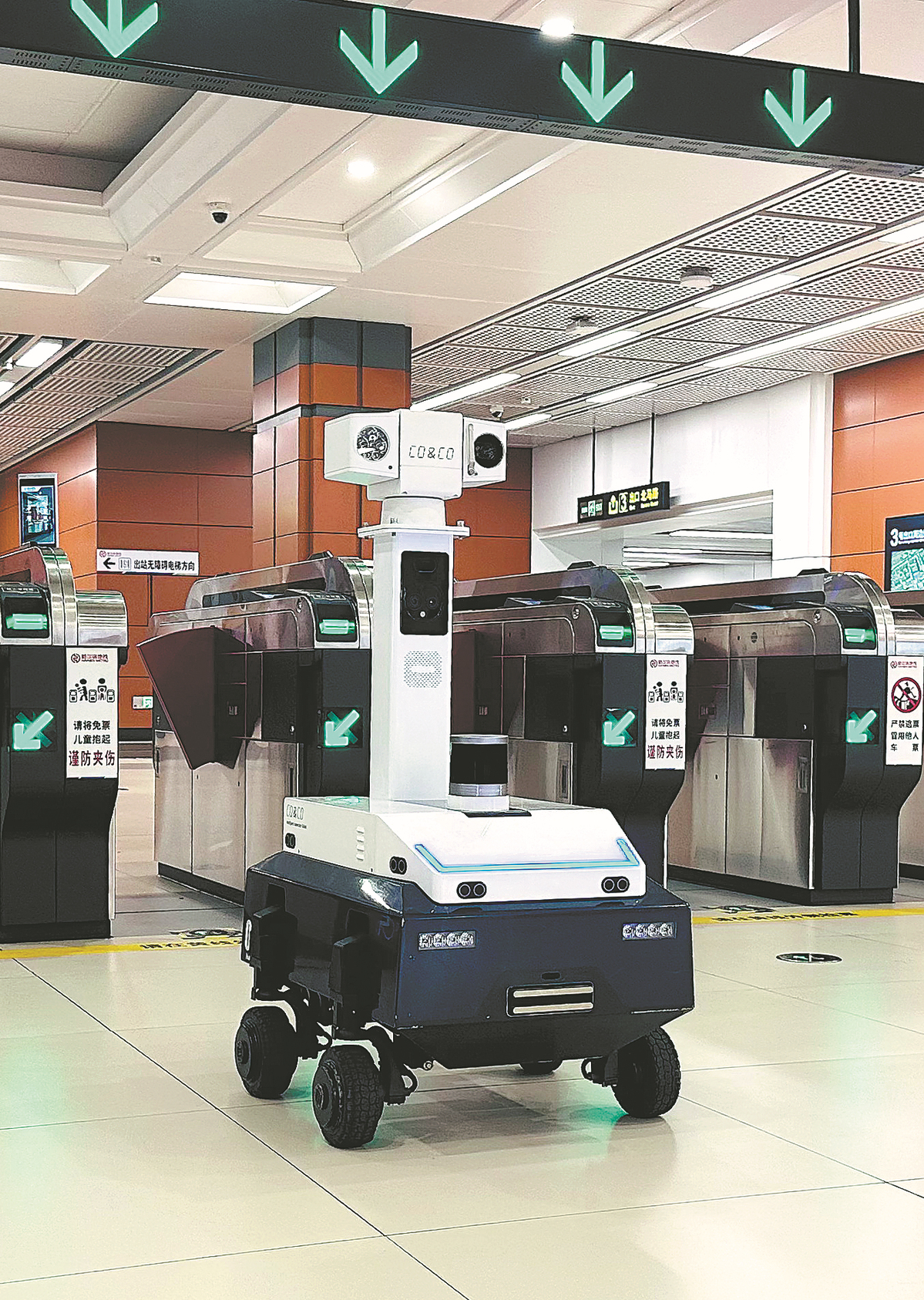Robot learns the ropes on Harbin metro network
By ZHOU HUIYING in Harbin | China Daily | Updated: 2024-08-28 09:18

A small robot patrolling and dispensing advice at a metro station in Harbin, Heilongjiang province, has recently attracted growing attention.
The intelligent inspection robot is undergoing tests for inspection operations and related work at selected metro stations, vehicle depots and residential properties on the metro line network, according to Harbin Metro Group.
The key technologies used in the robot, including intelligent inspection, intelligent recognition and intelligent control, have obtained national patents and intellectual property rights.
"The robots can identify the passenger flow entering the station and remind them to enter the station in an orderly manner, line up voluntarily and undergo security checks through voice prompts to maintain order in the station," said Wang Sicong, manager of Harbin Metro City Development Group Intelligent Co.
"They can also provide high-temperature warnings, environmental temperature and humidity sensing, and PM2.5 and PM10 air quality detection during inspections."
The robot was jointly developed by Harbin Metro City Development and Beijing Conco Intelligent Technology Co.
"Additionally, they can monitor whether the firefighting equipment in the station is complete and detect any anomalies such as leaks in a timely manner," Wang said. "The robots are managed through both computer and mobile devices and can be remotely controlled and respond quickly."
The robots also feature functions like two-way voice communication, allowing passengers to seek help with a single click and promptly receive assistance from station staff members.
"In a large factory with lots of equipment, manual recording and data processing often lead to errors," Wang said. "The robots can reduce human interference and increase inspection accuracy and consistency through automated data collection and processing."
With their all-weather, no-blind-spot inspection capabilities, the robots can perform round-the-clock, he said, adding that they can automatically recharge and actively avoid obstacles and people.
"To meet the requirements of various scenarios in Harbin's subway, we will make adjustments according to the test results … and will further develop the practical application of intelligent robots in the field of rail transit and property services," he said, adding that the research and development of the whole line of products is expected to be completed in one to three years.
Various intelligent robots such as vehicle intelligent inspection robots, tunnel inspection robots, 360-degree intelligent detection systems and cleaning robots are already in use in many Chinese subways.
On Nanjing's Metro Line 1, a new intelligent vehicle inspection robot and a 360-degree intelligent detection system have begun working together.
Shanghai Metro has introduced an intelligent inspection robot named Guardian, which is equipped with a variety of sensors such as a line scanning laser, high-definition camera and infrared thermal imager, to achieve autonomous inspection in tasks ranging from path planning to fault identification.
























